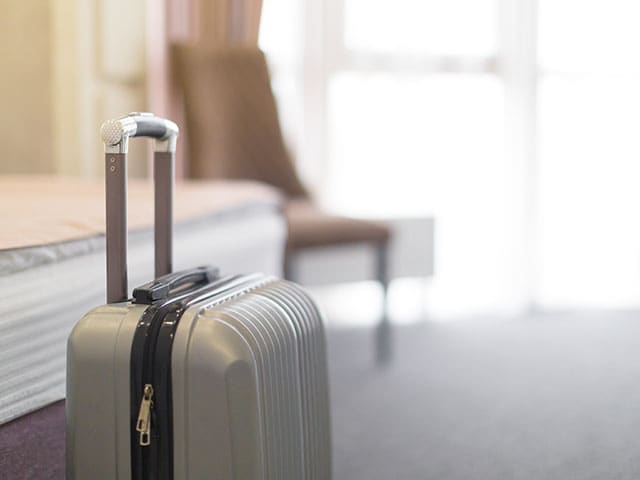
Americans are being warned by the U.S. State Department to avoid going on cruises. This advisory highlights the increased risk from infection by COVID-19, which can spread to passengers aboard cruise ships. It is best to cancel any cruise plans until the issue has been addressed.
Passport book
You will need a valid passport to travel by cruise ship. They are issued annually by the U.S. State Department. The cruise ship will refuse to allow you to board if you don’t have a valid passport. Be aware that many cruise ships require passengers present their passport book to board. This requirement can be found on the U.S. State Department website.
You can use a passport for both domestic or international travel. When you travel to several countries, passport books can help you organize stamps and visas. A standard passport has 28 pages. However, you can purchase additional pages to increase the number of pages. Since 2007, however, electronic passports are the norm.

Visa requirements for state department cruise travel
Visa requirements can vary widely depending on where you plan to go. A valid passport is required for citizens of Canada or the U.S. Alternatively, travelers may opt to use a trusted traveler card like NEXUS, SENTRI or FAST. Moreover, in some states, passengers may also use an Enhanced Driver's License.
Check the State Department's website to apply for a cruise Visa. This page provides information on visa application requirements, as well links to visa applications forms. You should plan well in advance, since last-minute rushes will cost you dearly. VisaCentral can assist you in obtaining the visa that you need to go on your cruise.
A passport book is an important piece to your documentation. The most current version is required if you plan on taking a cruise in the U.S. This is especially important if you intend to travel to places such as Bermuda or the Caribbean. Also, make sure to bring your original birth certificate.
COVID-19 transmission prevention on cruise ships
The prevention of COVID-19 transmission on cruise ships is a key priority for the cruise industry. The virus is a highly infectious disease that can spread rapidly among passengers on board. It is essential to act quickly and effectively, as with other infectious diseases. This article will outline some of the best strategies to prevent COVID-19 from spreading on cruise ships.

The USCG and CDC require cruise ship operators to report daily on the number COVID-19 cases. These reports must include information regarding the frequency of medical screenings and temperature checks, as well as the use of masks and other protective measures to minimize the risk of contamination. The crew on cruise ships should also be trained to respond in case of an outbreak of COVID-19. They must follow all the precautions recommended for preventing and treating this virus.
It will remain difficult to prevent COVID-19 from being transmitted on cruise ships. However, the CDC has committed to working with cruise operators to ensure safe and healthy travel. In fact, the CDC provides tools and guidelines to cruise ships that can help them combat the virus.
FAQ
Can I book my cruise too early?
Not always necessary to book your cruise early. It may be possible to save money by booking your cruise last-minute. It is best to book your cruise well in advance, even if it seems like a good idea. You can take advantage of promotions and special offers offered by cruise lines.
Is a cruise a good vacation?
The best vacations are those where you are free to relax and have fun. A cruise is just what the doctor ordered!
Do I need to dress up on a cruise?
No, you don't need to wear formal attire or anything fancy. Just be comfortable and ready to relax.
How long does it take for you to get to port?
The time it takes to reach the port depends on several factors, including the distance between the port and the ship, the speed at which the ship travels, etc. It is important to note that some ships dock very close to shore so they can quickly unload their passengers. Other ships dock farther away from land so it takes longer time for the ship arrive.
Can you take a cruise without a passport?
A passport is necessary to travel all over the world. You can travel to any country with a passport without needing a visa or other paperwork.
You might not be allowed into certain countries if you don't have a passport. It also lets you stay longer when traveling abroad.
What do you get when you cruise?
It is important to have fun. It doesn't matter if you have a lot of fun, but it is important to enjoy your time.
You'll find plenty of activities for everyone to participate in. You can always talk to someone if you feel bored.
Cruising is about having fun and relaxing. It's not all about seeing as much as you can.
There are many options for cruises, from short journeys in Europe to long trips across the Pacific. The length of the trip depends on what you want to accomplish during your vacation.
Statistics
- For an example of savings, Royal Caribbean offers up to a 40% discount with a dining package. (travel.usnews.com)
- The line estimates savings of 50% when you purchase this bundle. (travel.usnews.com)
- In addition, 10 to 15 percent gratuity is typically added to bar bills — for alcohol and soft drinks — and gratuities are applied to spa treatments. (cruiseline.com)
- If you're traveling alone, you may also need to factor in a single supplement, adding up to as much as 100% of the cruise fare. (travel.usnews.com)
External Links
How To
How to avoid becoming seasick during a cruise
A hat is the best way to prevent seasickness while on cruise. A wide-brimmed cap helps to prevent motion sickness by keeping your head from moving too much.
A hat can also keep water off the head, decreasing the amount of moisture in the air. This makes breathing easier for people prone to feeling dizzy when they breathe in moist air.
Another tip is to drink lots of fluids. Avoid alcohol or caffeine. These drinks dehydrate our bodies, which makes it difficult for fluid to move around in our stomachs. The amount of salt in the bloodstream can be reduced by drinking enough liquids. Salt can cause the body to retain water, leading to nausea.
Eat something salty if your stomach is feeling nauseous. Salty foods make the stomach produce more hydrochloric Acid, which is helpful in breaking down food particles.
There are medication options available to help seasickness. Side effects of some medications include dry mouth, dry eyes, constipation and blurred vision.